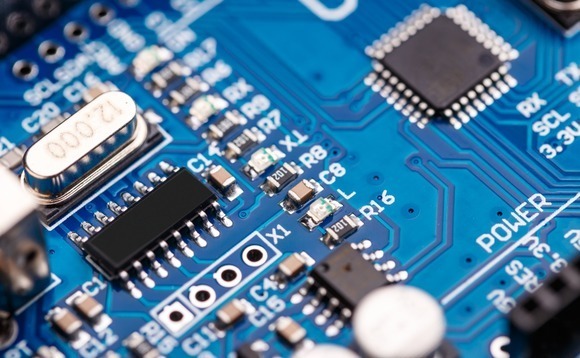
PE-backed Cambricon becomes China's first listed AI chip maker

Beijing-based Cambricon Technology, which is backed by CICC Capital, Alibaba Group, and Lenovo, has listed on the Star Market. It is the first Chinese artificial intelligence (AI) chip manufacturer to complete an IPO.
Cambricon raised RMB2.58 billion ($369 million) through its offering, selling 40.1 million shares at RMB64.39 apiece. The stock opened at RMB250 on its first day of trading on the Star Market - formally known as the Science & Technology Innovation Board - on July 20. It closed at RMB212.4, a 230% premium to the IPO price. As of midday on July 21, it was trading at RMB269.
Cambricon was founded in 2016 by Tianshi Chen, a professor at the Chiese Academy of Sciences' (CAS) Institute of Computing Technology. It received angel funding from voice recognition software developer iFlytek, Oriza Seed Fund and Yonghua Capital later the same year.
This was followed by a $100 million Series A round from Lenovo Capital & Incubator Group (LCIG), and an investment unit owned by Alibaba in 2017. CICC Capital, CMB International Capital and a group of state-owned venture capital funds supported its Series B round a year later, according to AVCJ research.
The company's two largest external shareholders are CMB International Capital and China Reform Fund Management, a private equity firm sponsored by China Reform Holdings and other central state-owned enterprises, according to a filing.
Cambricon was previously a key supplier of Huawei Technologies, providing terminal processor intellectual property for many of the company's devices. In 2017 and 2018, revenues from the Huawei IP business reached RMB7.7 million and RMB114 million, respectively. This represented nearly all of Cambricon's revenue.
Last year, Huawei suddenly launched its own terminal AI chip and terminated orders with Cambricon. IP business revenue duly fell to RMB68.7 million - 15% of the total. For the first quarter of 2020, operating revenue was RMB11 million, a 19% year-on-year drop that was blamed on the loss of the Huawei contract.
Cambricon responded by shifting to cloud-based AI chip solutions, generating sales of RMB78 million. However, Sugon, a superpower computer manufacture under CAS, accounts for 80% of this. Meanwhile, intelligent computing cluster systems emerged as a third product line, contributing 67% of the company's RMB444 million in annual revenue. The government of Hengqin, an island that is part of Zhuhai, was responsible for 46% of revenue.
Cambricorn is still bearing losses, with deficits of RMB380 million and RMB41 million in the last two years.
Several Chinese AI chip specialists have secured VC funding in recent months. They include Biren Technology, a nine-month-old smart chip designer, and Enflame Technology, a provider of AI-based deep learning solutions for data centers.
Latest News
Asian GPs slow implementation of ESG policies - survey
Asia-based private equity firms are assigning more dedicated resources to environment, social, and governance (ESG) programmes, but policy changes have slowed in the past 12 months, in part due to concerns raised internally and by LPs, according to a...
Singapore fintech start-up LXA gets $10m seed round
New Enterprise Associates (NEA) has led a USD 10m seed round for Singapore’s LXA, a financial technology start-up launched by a former Asia senior executive at The Blackstone Group.
India's InCred announces $60m round, claims unicorn status
Indian non-bank lender InCred Financial Services said it has received INR 5bn (USD 60m) at a valuation of at least USD 1bn from unnamed investors including “a global private equity fund.”
Insight leads $50m round for Australia's Roller
Insight Partners has led a USD 50m round for Australia’s Roller, a venue management software provider specializing in family fun parks.








